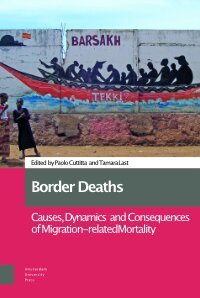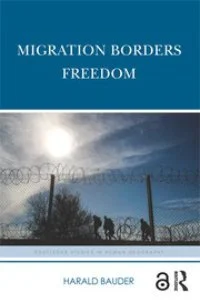Edited by Paolo Cuttitta, and Tamara Last.
Causes, Dynamics and Consequences of Migration-related Mortality. A 2018 report by two non-governmental organizations (NGOs) revealed that US Border Patrol agents ‘routinely intimidate, harass, and surveil humanitarian-aid volunteers, thus impeding the administration of humanitarian aid’ along the US-Mexico border. Furthermore, they ‘stab, stomp, kick, drain, and confiscate the bottles of water that humanitarian-aid volunteers leave along known migrant routes’ (La Coalición de Derechos Humanos and No More Deaths 2018). More broadly, through the criminalization of humanitarian assistance and the ‘weaponization’ of the terrain, US authorities make themselves responsible for the suffering, death and disappearance of many people (Morgan-Olsen 2018; Osuna 2018). On the other hand, Border Patrol agents often carry out rescue operations to save migrants, which – they argue – demonstrates ‘their dedication in protecting human life’ (U.S. Customs and Border Protection 2019). They are presented as true humanitarians (Price 2018). According to US President Donald Trump, the problem of border deaths can only be solved with more border control. ‘Border Patrol needs the Wall and it will all end’ was his comment on the death of two children occurred shortly after their crossing from Mexico (Tatum 2018)
Amsterdam: Amsterdam University Press, 2019. 175p.



